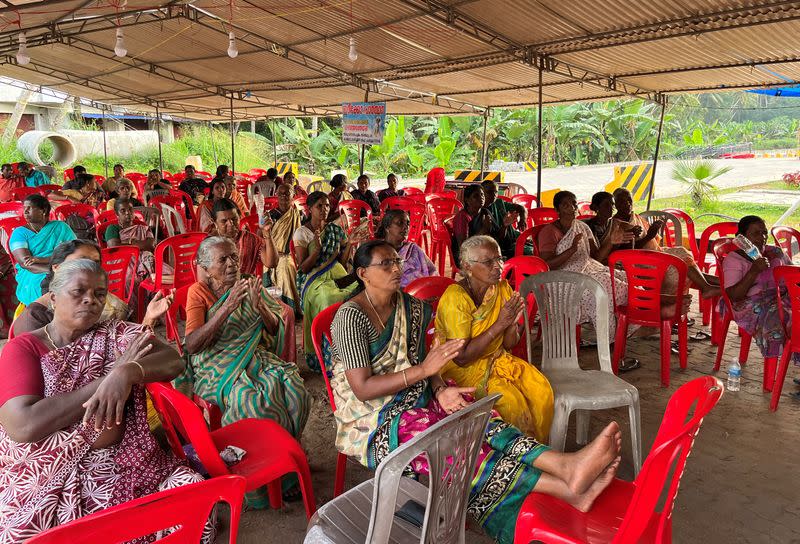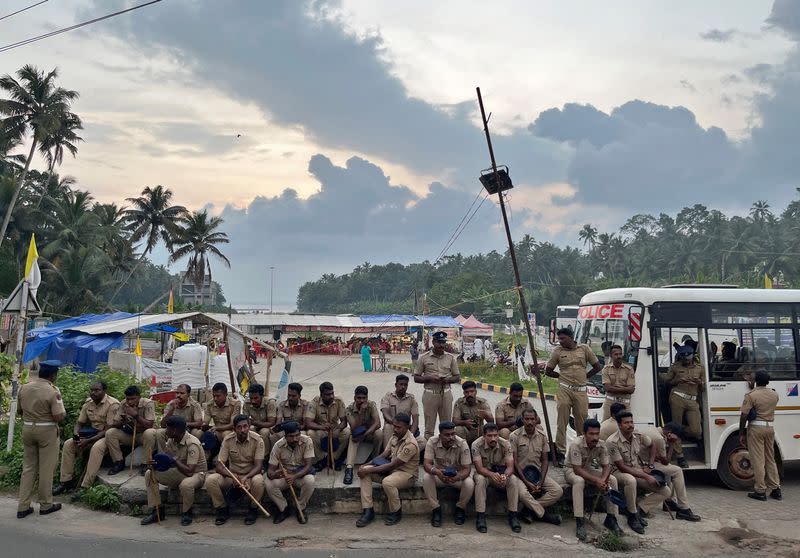More than 80 people have been injured in southern India as villagers preventing work on a controversial $900-million port clashed with police.
The drama is an escalation of a months-old protest waged by a mostly Christian fishing community against Asia’s richest man.
The protests are a major headache for Adani Ports, Gautam Adani’s $23-billion ports-and-logistics company, which has been forced to stop work on the Vizhinjam seaport that is seen winning business from rivals in Dubai, Singapore and Sri Lanka.
Construction, however, has been halted for more than three months after villagers blocked the entrance of the site. They blame the port for causing coastal erosion and depriving them of their livelihoods.
Over the weekend, police arrested several protesters after they blocked Adani’s construction vehicles from entering the port, despite a court order on Friday for work to resume.
The arrests prompted hundreds of protesters, led by Roman Catholic priests, to march on the police station, clash with personnel and damage vehicles there, according to police documents and footage on local television.
Senior local police official MR Ajith Kumar said 36 officers were wounded in the clashes, while Joseph Johnson, one of the protest leaders, said at least 46 protesters were also hurt.
ALSO SEE:
Chinese Stocks Sink After Covid Cases Rise, Protests Over Policy

Divisive Projects by Adani Group
Located on the southern tip of India, the port seeks to plug into lucrative East-West trade routes, adding to the global reach of the business led by billionaire Adani, estimated by Forbes to be the world’s third richest man.
Asked about the latest protest, the Adani Group did not immediately comment.
The company has said that the port complies with all laws and cited studies that show it is not linked to shoreline erosion.
The state government has also said that any erosion was due to natural causes.
The protests have continued despite repeated orders by the Kerala state’s top court to allow construction to start.
Police have largely been unwilling to take any action, fearful that doing so will set off social and religious tensions.
In the latest clashes, police documents said the protesters “came with lethal weapons and barged into the station and held the police hostage, threatening that if people in custody were not released they would set the station on fire”.
Eugine H Pereira, the vicar general of the archdiocese and a protest leader, said the police pelted the protesters with stones.
The port protests recall the backlash Adani faced in Australia over his Carmichael coal mine. There, activists concerned about carbon emissions and damage to the Great Barrier Reef forced Adani to downsize production targets and delayed the mine’s first coal shipment by six years.
- Reuters with additional editing by Jim Pollard
ALSO SEE:
India’s Adani to Splash $100bn on Clean Energy Over Decade
Adani Says Regulation Will Not Stop NDTV Takeover
India’s Adani, France’s Total in $50bn Green Hydrogen Deal – Mint
Solar Energy Boom Helps India’s Adani Become Asia’s Richest
Adani Group accelerates its ‘string of ports’ strategy
























